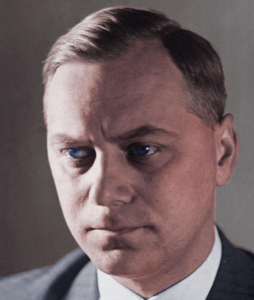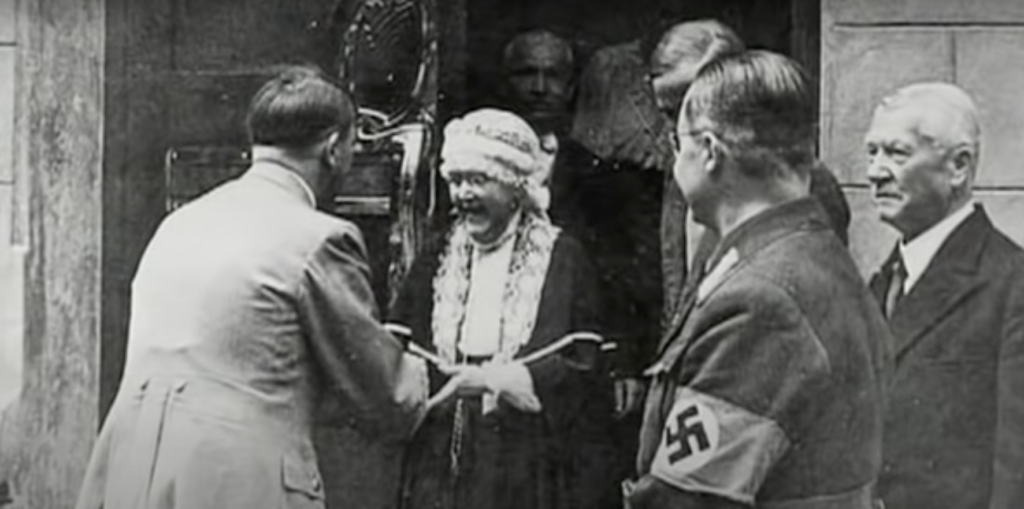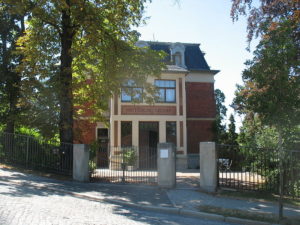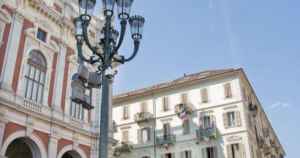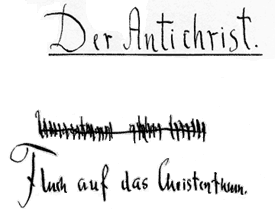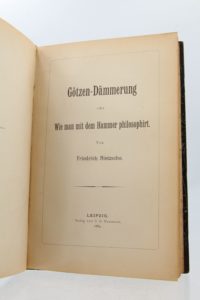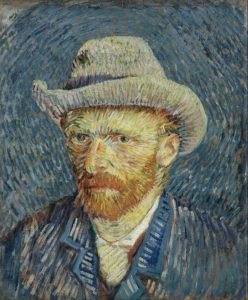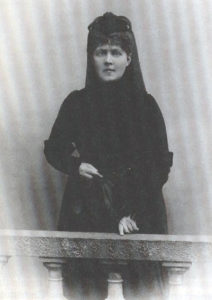against the Cross, 16
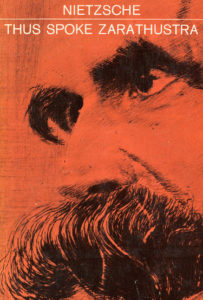
Can a book like Thus Spake Zarathustra, which I have heard of being recommended to high school kids to read, be a good book for our sacred words? I would say that if the System recommends it, it cannot be a good book, even though it sometimes says things so beautiful and profound that it is possible to quote it tersely.
In general, I don’t like Zarathustra for the same reason that I don’t like Mein Kampf: it cannot be read with the intensity of a novel that itches you to know the ending. For a book to be truly a work of art it is vital not only for its content to be germane but how it has been put together. While the content of the three volumes of The Gulag Archipelago is important, very few will read the trilogy because it is boring. It needed an editor to condense it into one, with Solzhenitsyn’s approval (as happened in real life), to make it both vital and aesthetic. Only then could I read it as if it was a highly entertaining novel! But it is still worth saying something about the book that would make Nietzsche famous.
This soul in sorrow was pregnant with ideas, pregnant with the sun (his Zarathustra begins with a hymn to the sun) and he gave birth to what he himself called ‘my son Zarathustra’. The eruption of feelings that motivated him to write, at the time of Richard Wagner’s death (Nietzsche sent a letter of condolence to Cosima), must be understood as the resolution of an intellectual crisis.
I never tire of repeating that his father and both his grandfathers were Lutherans; that his paternal grandfather was a Superintendent, the equivalent of a bishop, and that as a child Nietzsche was intensely pious. As he grew up, the hermit of Sils-Maria burst out of this iron pietism: a supernova-like explosion of feelings repressed during his upbringing, releasing the vital energy once locked up.
His translator, Hollingdale, makes a sharp observation about Nietzsche’s previous books. From the one he wrote on Schopenhauer onwards, they all led him to scepticism, not unlike the nihilism in vogue in the 19th century. This is one of the problems that contemporary racialists have detected: the loss of Christian faith doesn’t translate into, say, a scientific vision like those texts of Charles Darwin where he said that blacks, now considered an obsolete race of Homo sapiens, were to be exterminated. Instead, apostasy leads either to atheistic hyper-Christianity—the opposite of Darwin: negrolatry!—or to the nihilistic liberalism we complain so much about in the West’s darkest hour. In Nietzsche’s spiritual odyssey all his books, Hollingdale said, from the second of his Untimely Meditations to The Gay Science, he reached the end of the road: not axiological hyper-Christianity but nihilism. If Nietzsche had stayed there, let’s say as the typical 19th-century freethinker who so angered Wagner, he wouldn’t have gone down in the history of the great philosophers.
But he didn’t stay there. The pietistic armour that had imprisoned his spirit in a torment like that of the iron maiden had to fly into a thousand pieces. And this intellectual crisis gave birth to the religious figure of Zarathustra: a process begun in August 1881 when Nietzsche was assailed by the thought of the eternal return. It was then that he began to devise his philosophy of Amor fati without realising that, rather than in an iron maiden, he was locked in a sort of Russian doll. He blew up the first iron shell, yes: but he didn’t realise that it, in turn, was wrapped in another shell, insofar as Amor fati was but the post-theistic phase of ‘Thy will be done’, i.e. the phase without a personal god. In other words, with what Nietzsche calls in Zarathustra his ‘abysmal thinking’ we see that he was still a victim of the ogre of the pietistic superego.
To his astonishment, after having deluded himself that he would go to Bayreuth to ingratiate himself with all his old friends (remember the letter to his sister: ‘I no longer want to be alone and wish to learn to be a man again’), with Lou’s refusal he suddenly found himself on square one: alone. It is not surprising that Zarathustra begins with a hermit who wants to return to his village only to be mocked by the people, and has to return to his cave. The worst thing is that Nietzsche was to stay that way, alone, from the end of 1882 to the beginning of 1883.
In January of the latter year came the furious eruption: something which in my soliloquies I call the vindication of Id. Nietzsche underwent an inner transformation similar to those who suffer from colour blindness and are given special glasses so that they can see colours for the first time in their lives: they burst into tears. The tremendous eruption of feelings, thanks to which he was able to write the first part of Zarathustra, feelings so suppressed not only in Schulpforta but in the dense intergenerational atmosphere of clerics, would continue, later on, with the second and third parts: the latter even in a state of greater euphoria—the culmination of the book!—written in January 1884. The overman, the death of God, the will to power, Amor fati, the eternal return, the great noon: these were the intense colours that Nietzsche could at last see, so vivid that he couldn’t interrupt the weeping (by way of anticlimax, he would write the fourth part of Zarathustra at the end of 1884).
But the unconscious eruption of the central ideas of the Zarathustra had already been coming, as Hollingdale detectively surmised, from the earliest years of his life, albeit distorted and unrecognisably. Can you see, as I said to Thankmar this morning, why I try to protect myself from religious aggression (even horribler than Nietzsche’s Lutheran home) in a healthy way, instead of wayward defence mechanisms?
One of the reasons I generally dislike the book is that it suffers from the poets’ secrets that require the most erudite exegesis to unravel. For example, Werner Ross claims that the passage in Zarathustra that begins with ‘I saw his woman’ and then speaks of a ‘doll up lie’ and that ‘every time a saint and a goose mate’, when checked against Nietzsche’s letters he deduces that Elisabeth was the goose and Lou the doll up lie! And the same can be said of an important figure in Zarathustra: Ariadne. It is only thanks, years later, to the letters of madness that we discover that Ariadne was none other than Cosima Wagner! Why not state things clearly from the beginning, with the real names, as I do in my autobiography, instead of such esoteric circumlocutions that only the author understands?
In Thus Spake Zarathustra we see that Nietzsche’s alter ego didn’t offer his philosophy indiscriminately. First, he spoke to all the people gathered in the marketplace. But the death of God—the central theme of the first part—and the will to power are ideas that Zarathustra announces only to his disciples. And of the eternal return Zarathustra speaks exclusively to himself. Similarly, some chapters are narrative, others have a doctrinal character, and others of a lyrical nature represent the pinnacle of the work: oratory turned into music (a dozen years earlier Baudelaire had already created a new genre: poetic prose). Although in the second part of the book the central theme is the will to power, the final chapter of that part already brings to the fore, in a sinister manner, the revelation of the eternal return.
When studying the Zarathustra the reader must always bear in mind that the book is intended to be a shadow of the Lutheran translation of the Bible, known to Nietzsche in detail from the early years of his life, including Luther’s syntactical construction.
Zarathustra speaks again and again of the tablets of the law to be broken—Nietzsche even asked his publisher to put a black bar on each page to represent his new tablets of the law! The mixture of the biographical account of Zarathustra with doctrinal sentences was copied by Nietzsche from the Christian gospels, and it is not surprising that he wanted to elevate his Zarathustra to the status of holy scripture. In my humble opinion, writing a parable of his spiritual odyssey rather than a vindictive autobiography, with all the repudiation of the family that in the next century I would begin to write, was a preamble to the breakdown that had already been foreshadowed. In fact, this whole period from August 1881 to December 1888 may be regarded as the genesis of the wayward defence mechanism which, in January 1889, would burn out the mind of the alienated philosopher.
Moreover, the light we occasionally see in Zarathustra is not a light of dawn. It is a mere lightning light at midnight. It illuminates everything but only for a fraction of a second. Then the thickest darkness returns. But I would like to mention a snapshot of what the lightning illuminated.
After Kalki, the surviving Aryan will realise that the immeasurable universe wasn’t designed to visit it as the mad earthling of the 20th and 21st century fantasised, but to know himself to the extent of knowing the universe and the Gods. In the trillions of galaxies each intelligent species stays at home, on its own planet, given the impossibility of crossing those billions of light-years of distance with manned devices—a pointless enterprise because the men we would leave behind would remain forever inaccessible. These are the words I like best from Zarathustra: I love those who do not first seek behind the stars for a reason to go under and be a sacrifice, but who sacrifice themselves for the earth, that the earth may some day become the overman’s.
Hitler also said that over-humanity could only be achieved by the Aryan on Earth…
In the 1880s only Peter Gast, the enemy of the Church, became a kneeling apostle, and about Zarathustra he wrote to his mentor something the latter loved: ‘Of this book one must wish to spread it like the Bible’. Gast was unaware that this was impossible insofar as Nietzsche’s was an artificial religion; a true religion, as Savitri Devi tells us, comes into being only when it arises spontaneously from the collective unconscious (like National Socialism).
Nietzsche’s Zarathustrian defence mechanism was very similar to my own. When in the 1980s, a century after Nietzsche’s mental agony, I tried to exorcise my parental introjects I fell into the greatest hells because I didn’t yet realise—as Nietzsche’s Amor fati—that the mechanism I elaborated was also a kind of neo-theology inspired by New Testament stories. I have spoken at length about this in the last chapter of my Hojas Susurrantes and need not summarise it here.
When Nietzsche was buried, his friends surrounded his grave and recited some of Zarathustra’s poems.
 Behold, I teach you the overman!
Behold, I teach you the overman!
